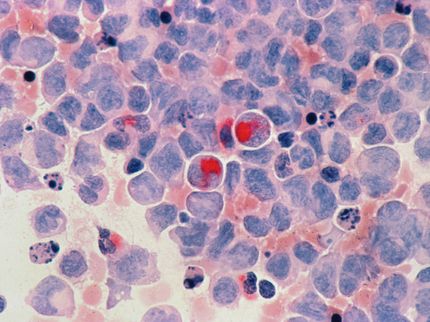Promising interim results of Phase II trial with elacytarabine in combination with idarubicin in patients with early stage acute myeloid leukaemia (AML)
Advertisement
Clavis Pharma ASA announced that promising interim efficacy data from its Phase II clinical trial with elacytarabine in combination with idarubicin in patients with early stage acute myeloid leukaemia (AML) who have failed cytarabine-containing first-course chemotherapy were presented at the American Society of Haematology annual meeting. Elacytarabine is a patented lipid-conjugated form of the anti-cancer drug cytarabine created by Clavis Pharma using its Lipid Vector Technology (LVT).
The interim results found that treatment with the elacytarabine/idarubicin combination showed promising clinical activity with a complete remission (CR/CRi) rate of approximately 46% in patients who failed to respond to cytarabine-containing first-course treatment (12 of 26 evaluable patients). To date, nine patients were deemed fit enough following treatment to be referred for stem cell transplantation, which represents a potential cure for these patients.
As expected, these responses are independent of the patient's hENT1 status. hENT1 (human Equilibrative Nucleoside Transporter 1) is a protein expressed on the surface of cancer cells that has been shown to be important for the uptake and efficacy of cytarabine.
Separately 30 patients were assessed for hENT1 expression level at time of initial AML diagnosis before standard cytarabine containing treatment. Preliminary results indicate that approximately 50% of patients have low hENT1 expression (defined as less than 10% of cancer cells stained). Of the patients with low hENT1, only approximately one third responded to conventional cytarabine-containing first-line therapy, while two thirds of patients with high hENT1 responded.
The main objective of the ongoing 50-patient trial is to study response rates to elacytarabine combination treatment after cytarabine combination treatment has failed and the relationship of outcome to the patient's hENT1 status. The study is being conducted at leading haematology clinics in the USA and Europe and top-line results are expected to read out in Q3 2012.






















































